-
Content count
1,394 -
Joined
-
Last visited
-
Days Won
7
Posts posted by Sir Darius the Clairvoyent
-
-
I am conflicted about my initial statement, as I feel it is somewhat possible to rank things in degree of divinity, contradicting my statement that God is all there is.
What’s your take, fellow bums, are some things more divine than other?
-
26 minutes ago, Nungali said:- Yes, I can provide detailed citations for both statements above
Yes please, but do you have it also in an somewhat easily digestible format?
-
That’s a fun one I think, on Russia and identity and otherness. For a geek like me, at least.
It’s a little strange when I see maps depicting Europe where Russia is cut out and turkey included, when it is clear to me that the former is firmly within the category and the other is not. I have always thought that is down to political agendas tho.
But now and than I bump across some American on the internet throwing Iceland, Finland and even Greenland 🇬🇱 in to Scandinavia, so who knows. I feel like both issues have become unnecessary touchy in the current day and age, as if belonging to the category is a question of value or something looney.
If it is based on knowledge of history or culture or geography or whatever ultimatley is not that important, as I would be a hypocrite of astronomical levels if I pretend to have great and detailed understanding of the etnic identities of people in lands far away. There is this term used to describe nowhere’s land: huttiheita. Never thought about it, but the word is completely nonsensical. Learned not so long ago that it is based on the French word for Haiti and morphed trough the centuries. I belive Timbuktu has a similar connotation to the English.
To Scandinavians what is and is not Scandinavia is very simple and there exist zero confusion about it: Norway, Sweden and Denmark. In part I believe the meaning of the terms Nordic and Scandinavian is reversed in English and in Scandinavia. Here, scandinavian is more of a cultural/etnic term while Nordic is more geographical. The very term Finland comes from old Norse finnr. Etymology a little unclear but in essence it boils down to something along the lines of «those people who are not us». Like how wales comes from Walas meaning foreigner.
The question of what is and is not Europe is an interesting one tho, as the tree continents of the old world was defined by the Greeks in times long gone, despite the lack of any magical line distinguishing the three. As far back as 400bc a fellow by the name of Hippocrates wrote:
I wish to show, respecting Asia and Europe, how, in all respects, they differ from one another, and concerning the figure of the inhabitants, for they are different, and do not at all resemble one another. To treat of all would be a long story, but I will tell you how I think it is with regard to the greatest and most marked differences.Basically Europeans are wild but simple and free, while the Asian is more slavish and ruled by tyrants, and of greater intelligence. The Greeks, ofc. got the best of both worlds. They were unique in their unmatched intelligence while remaining all brave and free and all that stuff. And if that is not human nature in a nutshell, I do not know what is. Those people there are kinda weird in that way, but the people on the other side are weird to the other extreme. My people, however, we got it just right ahaha.
In the opera to Beethovens ruins of athens, the Turkish march they go full bigot on the Greeks on how they have fallen, and have become a nation of slaves not worthy of claiming decent from the ancients, who Europe has always admired so, so highly. The British apperantly had an existential crisis when they took over Greece. They appeared way to swarthy, surely the inhabitants must be decendents of some Asian slave population and not the ancient ones… (in case you are curious, there is a large degree of genetic continuity in Greece since antiquity).Aaand this sorts of relates to the whole European identity thing. I think that «us» is often defined in opposition to «not them». Like, when Muslims we’re invading it was Christendom, when on its height of colonial power it was whiteness and civilized. Then it became «free and democratic.»
Prior to ww2, Hungarians would go great lengths to distance themselves from their nomadic and Eurasian origin, while tomorrow they might claim to be rightfull heirs of Djenghis Khan himself.
While I belive always seen as european both by themselves and the rest of Europe, I have a sense that it the sense of «otherness» goes way back. Getting assaulted by various nomadic people, the longer established western neighbors and Scandinavian raiders for a long time lefts its marks. 6 million of them were captured by these and sold to the caliphate as slaves. From where we get the very word slave, ofc. Then there was the orthodox thing making them a little exotic, then backwards, followed by racist accusations of being somewhat compromised by asian admixture, before becoming evil communists and today they are of course the dictionary definition on tyranny… sad, really.
But let’s end this rent on a little more positive note. For one thing I think people politice and over intellectualize identity way to much. To me it is just like porn, can’t define it but I know it when I see it. Countless nations and tribes called themselves simply «us,» «people,» etc. and their enemies as some variation of savage or degenerate. The Norse called the Greenlanders skraelings. Then some North American tribe called them Eskimo, meaning eating raw flesh or something like that. Today the correct term is what they call themself: Inuit, meaning humans. Conclussion: we are a fiercly tribal species, but at the end of the day we are all innuits.
-
 1
1
-
-
I grant this seemingly dead thread continued life as I write this words, abracadabra 🧙♂️🔥
Alan Watts has this wonderful ability to play around with language.
«life implies death, or should I say, death implies life.» I believe in immortality as how can non-being/excistence exist? I am not talking about continued existence/immortality as in this asshole writing these words going for ever and ever, but life it self, if that makes any sort of sense.
According to the always so accountable Wikipedia, immortality was the defining feature of the gods and mortality that of man, in many indo euro traditions:
SpoilerThe term for "a god" was **deywós ("celestial"), derived from the root *dyew, which denoted the bright sky or the light of day. It has numerous reflexes in Latin deus, Old Norse Týr(< PGmc. *tīwaz), Sanskrit devá, Avestandaeva, Irish día, or Lithuanian Dievas.[99][100] In contrast, human beings were synonymous of "mortals" and associated with the "earthly" (*dʰéǵʰōm), likewise the source of words for "man, human being" in various languages.[101]Proto-Indo-Europeans believed the gods to be exempt from death and disease because they were nourished by special aliments, usually not available to mortals: in the Chāndogya Upaniṣad, "the gods, of course, neither eat nor drink. They become sated by just looking at this nectar", while the Edda states that "on wine alone the weapon-lord Odin ever lives ... he needs no food; wine is to him both drink and meat".[102] Sometimes concepts could also be deified, such as the Avestan mazdā("wisdom"), worshipped as Ahura Mazdā("Lord Wisdom"); the Greek god of war Ares(connected with ἀρή, "ruin, destruction"); or the Vedic protector of treaties Mitráh (from mitrám, "contract").[103]
Yet there seems to have existed a possibility to somehow accent to godhood and immortality here and there, either trough action or enlightenment.
77. Cattle die, | and kinsmen die,
And so one dies one's self;
But a noble name | will never die,
If good renown one gets.78. Cattle die, | and kinsmen die,
And so one dies one's self;
One thing now | that never dies,
The fame of a dead man's deeds.
havamal -
@Nungali do you think there is something fundementally different in what’s often called the monotheistic and abrahamic religions compared to.. let’s just call it polytheism and animism for instance, in their concept of divinity? I don’t think any of these labels are all that meaningful, but I guess it gets the point across
-
4 minutes ago, stirling said:most people will fail to understand what is meant by them.
I am sure I do as well, but your instructions, so to speak, has been interresting to explore even at the very beginning, surface level. Thanks. And thanks to Luke above as well.
@liminal_luke sure, don’t get me wrong, there is a lot of beauty in borrowing and exploring and learning from other cultures. I’m almost tempted to say it is fundemental, and I don’t like the term appropriation as I find it… well, dumb. As you said it yourself, man has always learned and traded and interacted with the foreign. If some Italian snob tried to tell me I am not allowed to have wine to my pizza I would just laugh and enjoy the wine even more. Still tho, credit where credits due, when you try traditional Italian made pizza made by an Italian in Italy, it is on a nother level than what’s to find in my freezer.
-
 1
1
-
-
26 minutes ago, Taomeow said:In Lima, Peru, I visited a 500-year-old Franciscan Monastery, where they have a huge painting of the Last Supper on the wall of the monks' dining hall. In that painting Jesus and the apostles are drinking ayahuasca and eating a guinea pig.
Lovely story ❤️🔥
QuoteWhile this cuisine is far removed from what they could have been consuming at the Last Supper in Jerusalem, I think it's the art of translation doing its best -- translation not of texts "as is" but of complex cultural references, philosophical and spiritual ideas separated by time, space and very different human experiences. In this case, the translation into the local idea of spirituality was perfect.
Mhm, translation, or maybe reinterpretation or adaptation, is key. By all means, read, study, talk and pick from whatever source of wisdom from any time or place, as long as it is genuine and resonates at some level.
QuoteI don't think any locals at the time could possibly grasp how anything can be holy without ayahuasca.
Matter of fact, I've trouble believing that any religion that has rid itself of entheogens is more than a cargo cult. Whereas in their presence, the sacraments "explain themselves" directly, so to speak, and may help bridge the space-time-experience rift between cultures.
Mhm I think you are on to something. This Sami wise man once admitted that while he was chanting and rhythmically beating his drum, he was just going trough the motions and said he had no clue what he was doing. Before the aryan offered them redemption trough Christ and status as human beings (all be it slightly inferior, not even the gospel can compensate fully for their asiatic admixture as their skull was measured and found to not be an exact match to that of the Nordic volk), they made use of funny substances, often filtered through the urine of reindeer, while performing their rituals and contacting the invisible realm. Once the chain was broken tho, it seems it could never be fully restored. Now they refer to the pre Christian era as «the age of the drum».
This happened to pretty much every culture, I guess. Henbane, mushrooms, cannabis and mead with some added substances for that X factor feel was fundemental in rituals, burials, magic etc. for the Norse pagans as well. Below you can see Odin, shapeshifted as an eagle, pooping down some mead of poetry on mankind after having retrieved it from two dwarfs in a cave, who had slaughtered the wisest being in the cosmos and brewed the drink out of his blood.
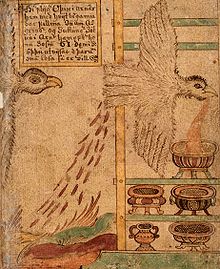
Please don’t suggest that they were not tripping hard while telling this story. And yet another tradegy: the gift from the gods used in ritual circumstances has now been degraded to drug abuse, a societal hazard. Sure, people still use now and then. I have as well. But I suspect 8 stoned teenagers watching Netflix and tripping while their parents are away for the weekend, doesn’t hit in quite the same way.
How many cultures were not at least in part based on the use of various mind altering substances until very recently? Ah the loss…
I find the theory that various substances was fundemental in the development of human culture and religion to be very plausible. And also a reminder that there are other ways to organize, that is not depended on Pfizer certified stimulants in order to function.
Yeah, interresting observation.
-
 2
2
-
-
40 minutes ago, Maddie said:I guess a good preliminary question would be to define which god one is talking about?
God as you understand it/him (or her/them, whatever haha)
-
It is an impossible task, and I’m sure there are many of them already. I have even made one quite similar years ago. But here I want it more concrete, and your understanding of it.
I would say God is everything. All that is, always. Nature, the universe, cosmos. From a grain of sand to a fish and man, the planets and the sun.
Universe
late Middle English: from Old French univers or Latin universum, neuter of universus ‘combined into one, whole’, from uni- ‘one’ + versus ‘turned’ (past participle of vertere ).
Further more, I belive it is fundamentally consciousness, and that we are individuated consciousness. Soul/oversoul. Not even God knows where he came from.
-
3 minutes ago, Keith108 said:So, what's the solution? Heck if I know. For me, it's the path of the Buddha, Dharma, and Sangha. YMMV

Nobody knows. I think it’s important to find growth and peace and beauty in your path tho, and it seems you have

My plan for the year, is to implement two habits religiously: meditation and working out hard every day. I believe that will bring a lot of positive side effects.
-
Fire bomb, I known. Couldn’t make it more politically incorrect if I actively tried to. But if we play with this idea as adults, I think it could be an interesting discussion.
the above is a 4.000 year old joke from Mesopotamia. It reads: the joke reads: “A dog walks into a bar and says, ‘I cannot see a thing. I’ll open this one.’” Funny, right? What I am trying to illustrate, is how depended on culture, time and place our perspectives are. Language for instance, I think massively influence the way we think, and visa versa. We are a product of tradition, culture, upbringing, genetics, history, list goes on.
Can we ever truly grasp an alien tradition the way we grasp our own, or is it like the Sumerian joke? Let’s be real, it would look a little silly if I tried to act and speak as an Amazonian wiseman, wouldn’t it? Not because they are wrong or worse, nor because I am, but simply that it can never resonate at the same level as say… Jesus on the cross, for instance.
edit, continuing: likewise, when Christianity arrived here, it took on a unique, cultural element not present in say, Japan or Ethiopia. Christmas Eve here is centered around the worship of a tree with presents under it, ungodly amounts of alcohol and fatty meat. Nothing biblical about it whatsoever.
-
There is this thing called the naturalistic fallacy, you all know it. To me, I think it is the only «non-fallacy.» It is the naturalistic fallacy fallacy.
If you are a cat, be a cat, not a dog. If you are you, stay true to you, and in accordance/harmony with your environment/nature. I generally believe it is a good idea to look at the environment we developed in for guidance on how to live.
-
1 hour ago, Keith108 said:Love Brand’s line, hits the nail on the head.
It truly does.
I also think there is an inherited flaw in the mindset describe initially:
«For Weber, the advent of scientific methods and the use of enlightened reason meant that the world was rendered transparent and demystified. Theological and supernatural accounts of the world involving gods and spirits, for example, ceased to be plausible. Instead, one put one’s faith in the ability of science to eventually explain everything in rational terms.»
Who says that rationality and the scientific method is the end all, be all? I remember in my teens I had this existential crisis, because I could not come up with any objective reason why what I was told was «right» and what I was told was «wrong» was based on anything objective what so ever. I read the moral landscape by Sam Harris once, where he attempted to prove objective morality… His sad attempt gave me the courage to finally reject it all together ahaha. You can’t derive an ought from an is, and either your following your own will or someone’s else. Rationality has it place, but my god does it have limits. Fear, love, tribal dynamics, drugs, faith, the afterlife…. How do you approach these things rationally? Rationality itself needs to be founded upon some sort of desired outcome or value system anyhow. And then there is yet another faulty assumption, that you can set up some sort of cost benefit evaluation on an excel spreadsheet for all the unknown and unpredictable in life. Hmm…
We both agree with his statement. Why/how do you think we ended up at this place? I think a lot of it as to do with the artificial manufacturing for goods and services out of greed, basically.
-
-
Do we live in an disenchanted world? How does this affect us? I’d say that the top 10 results of me googling the word, were about a TV-show, kinda proves that we do. But what’s your take?
Out of laziness, I give you a section from britannica:
«Weber used the German word Entzauberung, translated into English as “disenchantment” but which literally means “de-magic-ation.” More generally, the word connotes the breaking of a magic spell. For Weber, the advent of scientific methods and the use of enlightened reason meant that the world was rendered transparent and demystified. Theological and supernatural accounts of the world involving gods and spirits, for example, ceased to be plausible. Instead, one put one’s faith in the ability of science to eventually explain everything in rational terms. But, for Weber, the effect of that demystification was that the world was leeched of mystery and richness. It became disenchanted and disenchanting, predictable and intellectualized. In that sense, the disenchantment of the world is the alienating and undesirable flip side of scientific progress.»
Russell Brand gave this description, which I found to be spot on: «we have made the sacred profane and the profane sacred» (something like that).
-
It is a good read. Main take away, and I think the intented takeaway, is that he is very antropromorphic. And he is. Which seems strange to us today, somehow. How the ancients regarded God is big question. How we regard God is just as mysterious ahahha. But humans have protrayed gods as humans for a long, long time. Like here:
Spoiler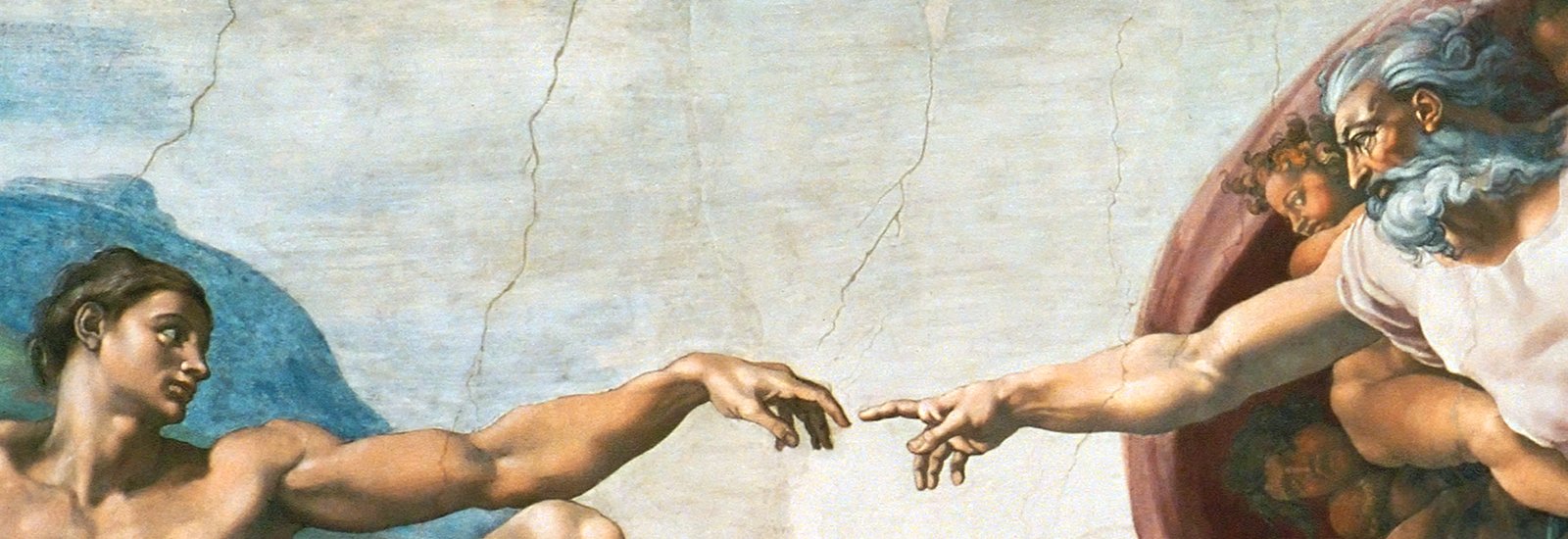
Or even further back, like here:

Or here, the main man himself:

And here:

Possibly even here, who knows:
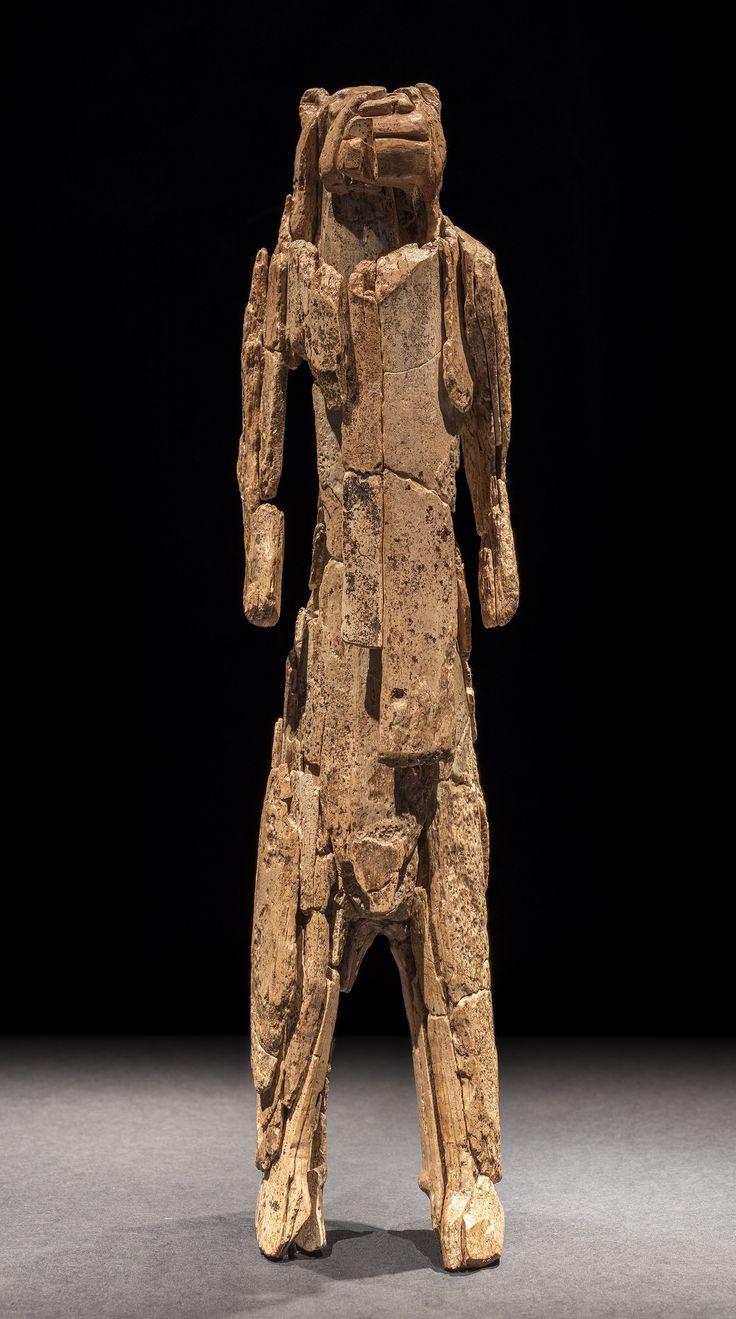
We all agree that we do not think Michelangelo attemptet to paint God as he is, right? But for whatever reason, I am less likley to give them that benefit the further back we go. Odin rides a horse named sleipnir, the son of the god Loki (in the form of a mare) and the stallion Svadilfari who belonged to the jötunn that built the walls of Asgard
 Just for fun I googled the conquestes of Zeus:
Just for fun I googled the conquestes of Zeus:
- Europa
- Io
- Semele
- Ganymede
- Callisto
- Dione
- Persephone
- Nemesis
- Thaleia
- Alkmene
- Danae
Are we to belive this is literal? I think that would be dumb. I find it more likley they saw god as in nature, in ancestors, in fate, spirits and so on.
SpoilerThe Germans, however, do not consider it consistent with the grandeur of celestial beings to confine the gods within walls, or to liken them to the form of any human countenance. They consecrate woods and groves, and they apply the names of deities to the abstraction which they see only in spiritual worship.
Tacitus, Germania
All that is from the gods is full of providence. That which is from fortune is not separated from nature or without an interweaving and involution with the things which are ordered by providence. From thence all things flow; and there is besides necessity, and that which is for the advantage of the whole universe, of which thou art a part. But that is good for every part of nature which the nature of the whole brings, and what serves to maintain this nature. Now the universe is preserved, as by the changes of the elements so by the changes of things compounded of the elements. Let these principles be enough for thee; let them always be fixed opinions. But cast away the thirst after books, that thou mayest not die murmuring, but cheerfully, truly, and from thy heart thankful to the gods.
Meditations Book II, Verse 3
Most honored of immortals, many-named one, ever omnipotent,
Zeus, prime mover of nature, steering all things by your law,
Cleanthes, Hymn to Zeus
16. O Sun, sole traveller of the Heavens, controller of all, Surya, son of Prajapati remove thy rays and gather up thy burning light. I behold thy glorious form; 1 am he, the Purusha within thee.
Isha Upanishad
Hard to belive any of these pictured God as man, no? I do not even think they had religion, in the sense that we got religion, as in a book and set of customs and beliefs we are to activley buy into and follow, because it is written. Rather, they just did what they had always done and believed, in a sense (I imagine). You put porridge outside at winter so that your ancestors dont go hungy. Bury them with some shoes with nails in, cause it is cold and slipery where they are going. And what kind of idiot buries their dead? How does their essence then enter heaven

I’m wondering if I might be autistic, as I have an amazing ability to make Chinese people feel uncomfortable (unintentionally ofc). I once started asking this guy how they do their religions and stuff in his tradition. He told me they burned paper money so that the dead could have it. Hate to say it, but I couldn’t help but laugh a little, imagining them up there in the heavens at a grocery store… but really, it is no more/less dumb than any other sacrifice, is it?
Animism is the said to be the "oldest" form of belief, is it not? I went to britannica for a definitions:
"animism, belief in innumerable spiritual beings concerned with human affairs and capable of helping or harming human interests." I mean, pretty much what we are doing today, is it not? I imagine you have some thoughts on this, based on your studies? -
I think it is by now pretty much established that Jesus birth was put at/near the solstice, and the pagan celebrations of the time. One would assume that the solstice also marked the new year? Anyone know how/when/if this split took place?
-
News tend to be boring for the most part, do they not? Maybe I’ll create an interesting news thread.
-
Its a hard line to balance, between being curiously boring and just boring, or not boring enough for the boring news thread.
-
 2
2
-
-
6 hours ago, Keith108 said:Liked that one. They say 95 percent of maintaining a healthy weight happens in the kitchen.
Yep it’s good knowledge to have. Surprising as well
-
-
-
10 minutes ago, Maddie said:The term Anatta in India means "self" or "soul", basically an unchanging essence. The Buddha taught that there are five aggregates that we tend to assume are us, but in reality are not. They are physical form such as the body, feeling meaning the six senses making contact with objects and our perception of them as being good, bad, or neutral. Perception which is our recognition of classification of objects based mainly on past experiences. Volition which is the decision making part of the mind, and consciousness which is our awareness of these other experiences. The Buddha taught that these five things were commonly assumed to be the self but are not.
So «detaching» from these is the goal/enlighenment?
-
Just now, Maddie said:If we are going to use "ego" in the way the Buddha meant anatta then it is the misunderstanding of the five aggregates as being the self when they are not.
I could ofc do my own research, but would you like to expand on anatta?

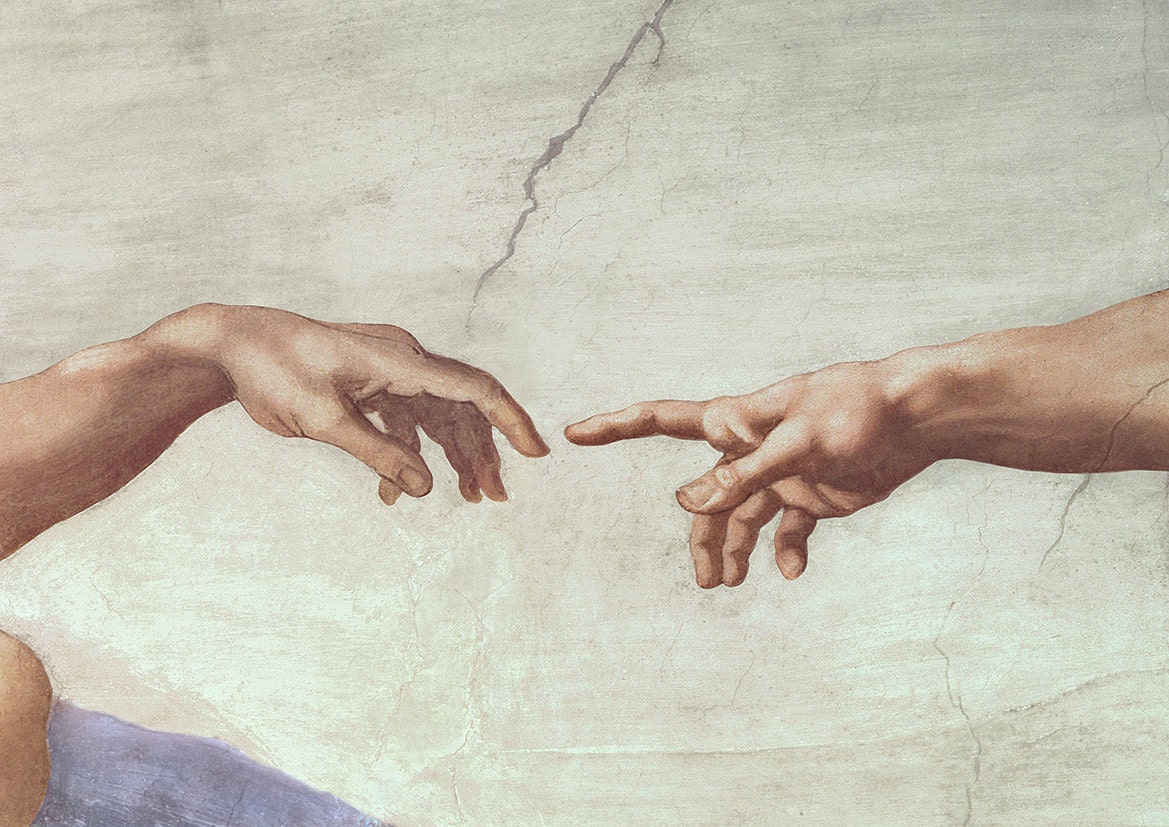
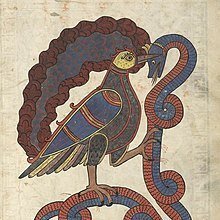
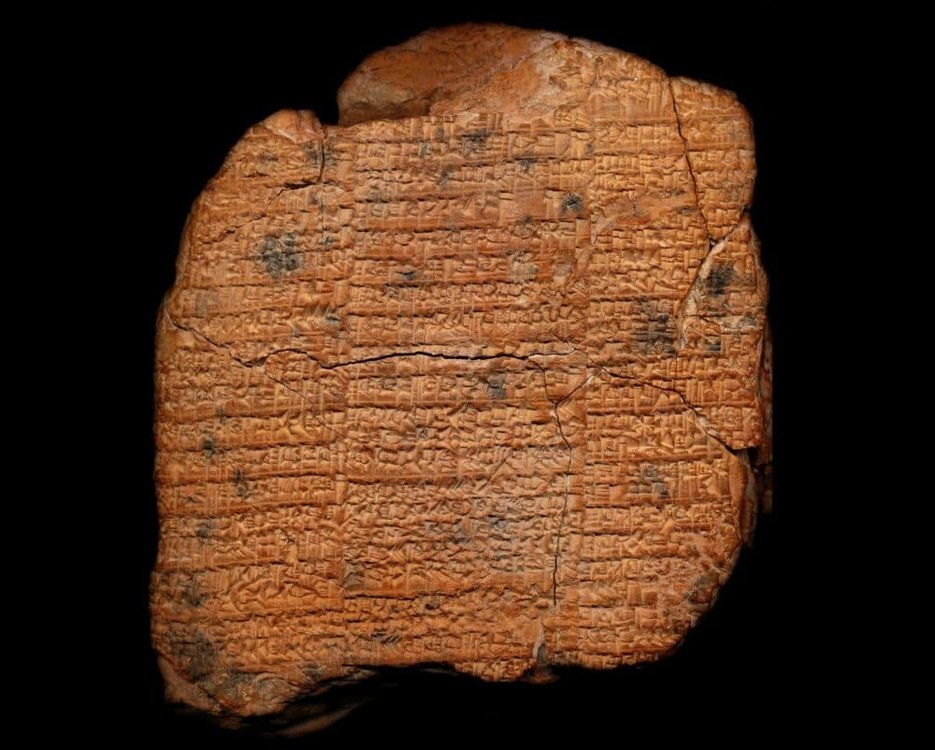
What God Looks Like
in Abrahamic Religions Discussion
Posted
My favorite search engine keeps delivering ❤️